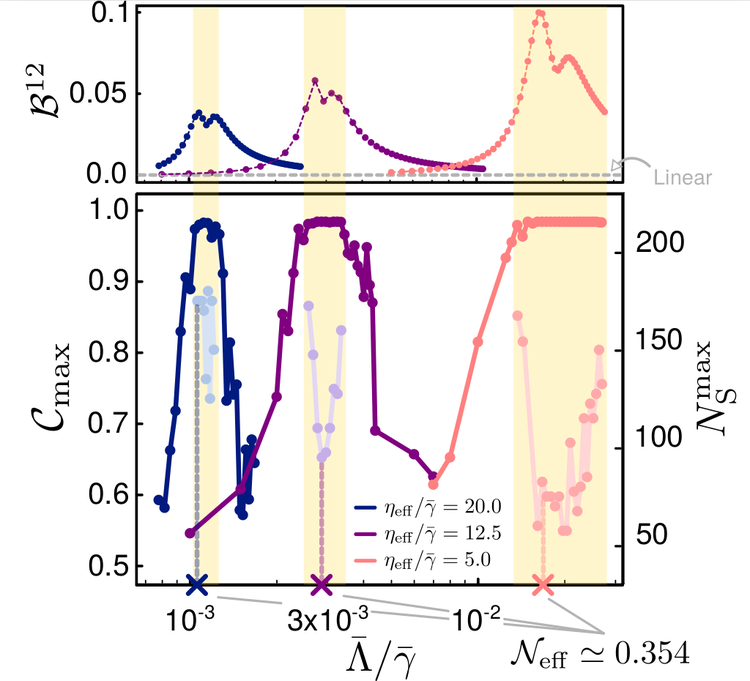Image

Physical reservoir computing using finitely-sampled quantum systems
Publication Year
2021
Type
Journal Article
Abstract
The paradigm of reservoir computing exploits the nonlinear dynamics of a physical reservoir to perform complex time-series processing tasks such as speech recognition and forecasting. Unlike other machine-learning approaches, reservoir computing relaxes the need for optimization of intra-network parameters, and is thus particularly attractive for near-term hardware-efficient quantum implementations. However, the complete description of practical quantum reservoir computers requires accounting for their placement in a quantum measurement chain, and its conditional evolution under measurement. Consequently, training and inference has to be performed using finite samples from obtained measurement records. Here we describe a framework for reservoir computing with nonlinear quantum reservoirs under continuous heterodyne measurement. Using an efficient truncated-cumulants representation of the complete measurement chain enables us to sample stochastic measurement trajectories from reservoirs of several coupled nonlinear bosonic modes under strong excitation. This description also offers a mathematical basis to directly compare the computational capabilities of a given physical reservoir operated across classical and quantum regimes. Applying this framework to the classification of quantum states of systems that are part of the same measurement chain as the quantum reservoir computer, we assess and explain measurement-contingent advantages and disadvantages of reservoir processing in quantum regimes. Our results also identify the vicinity of bifurcation points as presenting optimal nonlinear processing regimes of an oscillator-based quantum reservoir. The considered models are directly realizable in modern circuit QED experiments, while the framework is applicable to more general quantum nonlinear reservoirs.
Journal
arXiv: 2110.13849
Documents
